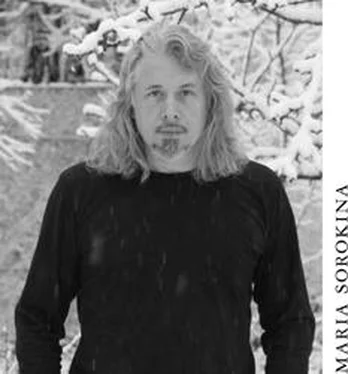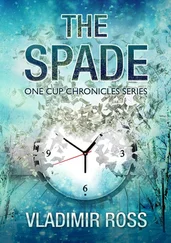Vladimir Sorokin - The Blizzard
Здесь есть возможность читать онлайн «Vladimir Sorokin - The Blizzard» весь текст электронной книги совершенно бесплатно (целиком полную версию без сокращений). В некоторых случаях можно слушать аудио, скачать через торрент в формате fb2 и присутствует краткое содержание. Год выпуска: 2009, ISBN: 2009, Издательство: Farrar, Straus and Giroux, Жанр: Старинная литература, на английском языке. Описание произведения, (предисловие) а так же отзывы посетителей доступны на портале библиотеки ЛибКат.
- Название:The Blizzard
- Автор:
- Издательство:Farrar, Straus and Giroux
- Жанр:
- Год:2009
- ISBN:9780374709396
- Рейтинг книги:4 / 5. Голосов: 1
-
Избранное:Добавить в избранное
- Отзывы:
-
Ваша оценка:
- 80
- 1
- 2
- 3
- 4
- 5
The Blizzard: краткое содержание, описание и аннотация
Предлагаем к чтению аннотацию, описание, краткое содержание или предисловие (зависит от того, что написал сам автор книги «The Blizzard»). Если вы не нашли необходимую информацию о книге — напишите в комментариях, мы постараемся отыскать её.
The Blizzard — читать онлайн бесплатно полную книгу (весь текст) целиком
Ниже представлен текст книги, разбитый по страницам. Система сохранения места последней прочитанной страницы, позволяет с удобством читать онлайн бесплатно книгу «The Blizzard», без необходимости каждый раз заново искать на чём Вы остановились. Поставьте закладку, и сможете в любой момент перейти на страницу, на которой закончили чтение.
Интервал:
Закладка:

Begin Reading
Table of Contents
About the Author
Copyright Page
Thank you for buying this
Farrar, Straus and Giroux ebook.
To receive special offers, bonus content,
and info on new releases and other great reads,
sign up for our newsletters.

Or visit us online at
us.macmillan.com/newslettersignup
For email updates on Vladimir Sorokin, click here.
For email updates on Jamey Gambrell, click here.
The author and publisher have provided this e-book to you for your personal use only. You may not make this e-book publicly available in any way. Copyright infringement is against the law. If you believe the copy of this e-book you are reading infringes on the author’s copyright, please notify the publisher at: us.macmillanusa.com/piracy.
A dead man lies asleep,
Upon a bed of white,
Swirling at the window
Is a blizzard calm and light.
—ALEXANDER BLOK
“You have to understand, I simply must keep going!” Platon Ilich exclaimed angrily. “There are people waiting for me! They are sick . There’s an epidemic! Don’t you understand?!”
The stationmaster clenched his fists against his badger-fur vest, and leaned forward:
“Well now, whaddya mean, we don’t understand? ’Course we do. You don’t wanna stop, ’course I understand. But I don’t got horses and ain’t gonna get none till tomorrow!”
“What do you mean you don’t have horses?!” Platon Ilich cried out in a livid voice. “What is your station for, then?”
“That’s what for, but all of ’em are out, and there ain’t a one to be found nowheres!” the stationmaster shouted, as though speaking to a deaf man. “Not ’less some miracle brings the mail horses in tonight. But who knows when they’ll get here?”
Platon Ilich removed his pince-nez and stared at the stationmaster as though seeing him for the first time:
“My good fellow, do you comprehend that people are dying?”
The stationmaster unclenched his fists and stretched his hands toward the doctor like a beggar.
“Who don’t understand dying? A’course we does. Good Russian Orthodox people dying, it’s a terrible business. But look out the window!”
Platon Ilich put his pince-nez back on and automatically turned his puffy eyes toward the frost-covered windows through which nothing could be seen. Outside, the winter day was still overcast.
The doctor glanced at the clock, which was shaped like Baba Yaga’s hut on chicken legs; it ticked loudly and showed a quarter past two.
“It’s already past two!” He indignantly shook his strong, close-cropped head, tinged with gray at the temples. “Past two o’clock! And it will get dark, don’t you get it?”
“A’course, why wouldn’t I be getting it—” the stationmaster began, but the doctor interrupted:
“I’ll tell you what, old man! You get me some horses if you have to dig them up out of the ground! If I don’t make it there today, I’ll take you to court. For sabotage.”
That familiar government word had a soporific effect on the stationmaster. He seemed to fall asleep, all his muttering and explaining coming to an abrupt halt. He wore a short vest, velour pants, and high white felt boots with yellow leather soles sewn on. His body was slightly bent at the waist; he seemed to freeze, remaining immobile in the dim light of the spacious, overheated chamber. On the other hand, his wife, who until now had been sitting quietly and knitting behind a calico curtain in the far corner, turned and peered out, showing her broad, expressionless face, which the doctor had already grown sick of over these last two hours of waiting, drinking tea with raspberry and plum jam and leafing through year-old copies of the magazine Niva :
“Mikhailych, what about asking Crouper?”
The stationmaster perked up immediately.
“Hmmm, we could try Crouper,” he said, scratching his left arm, and half turning to his wife. “But they want official horses.”
“I don’t care what kind they are!” the doctor exclaimed. “Horses! Horses! I just want hor-r-r-r-ses!”
The stationmaster shuffled over to the high counter:
“If he ain’t at his uncle’s in Khoprov, we c’n try…”
He lifted the telephone receiver, turned the handle a couple of times, stood up straight, put his left hand on the small of his back, and raised his balding head high as if trying to grow taller:
“Mikholai Lukich, it’s Mikhailych here. Tell me, our bread man passed your way this morning? No? All right then. A’course not! Not going nowhere now, not a chance … you’re right. Well now, I’ll be thanking you.”
He replaced the receiver carefully. Signs of animation appeared on his carelessly shaven, ageless face, and he shuffled over to the doctor:
“Crouper didn’t go to Khoprov for bread today. So he’s here, prob’ly lying about next to the stove, ’cause when he goes to fetch bread, he always drops by his uncle’s. They have a cup of tea and chat up a storm. He don’t bring our bread till suppertime.”
“He has horses?”
“He’s got a sledmobile.”
“A sledmobile?” The doctor frowned, taking out his cigarette case.
“If you beg him and explain, he’ll take you to Dolgoye on his snow sled.”
“And my horses?” Platon Ilich’s forehead puckered, as he remembered his sleigh, driver, and pair of work-issued official horses.
“They can stay put for the time bein’. You can go back on ’em!”
The doctor lit up and exhaled smoke:
“And where is this bread man of yours?”
“Not too far aways from here.” The stationmaster gestured behind him. “Vasya over there’ll take you. Vasya!”
No one answered his call.
“He’s like to be in the new cottage,” the stationmaster’s wife called out from somewhere behind the curtain.
She stood, her skirts swished across the floor, and she left the room. The doctor retrieved his heavy floor-length beaver coat from the coatrack, put it on, set a wide fox-fur hat with earflaps on his head, threw a long white scarf around his neck, pulled on his gloves, grabbed both of his traveling bags, and stepped firmly over the threshold of the door that the stationmaster had opened for him into the dark mudroom.
Platon Ilich Garin, the district doctor, was a tall, sturdy forty-two-year-old man with a long, narrow face and a large nose; he was closely shaven and always wore a look of concentrated dissatisfaction. His purposeful face, with its large, stubborn nose and puffy eyes, seemed to say: “You are all preventing me from achieving the very important thing I was destined by fate to accomplish, the thing I know how to do better than all of you, and to which I’ve already devoted most of my conscious life.” In the mudroom he ran into the stationmaster’s wife and Vasyatka, who immediately took his two traveling cases.
“The seventh house down thataways,” explained the stationmaster, running ahead and opening the door to the porch. “Vasyatka, show the doctor gentleman the way.”
Platon Ilich went outside, squinting. The day was frosty and overcast; a faint breeze had been blowing for the last three hours and a fine snow was still falling.
“He won’t ask fer too much,” the stationmaster mumbled, shivering in the wind. “He ain’t much interested in profits. Just as long as he can drive.”
Vasyatka put the traveling bags on the porch bench, disappeared back inside, and soon returned in a short fur coat, felt boots, and a hat; he grabbed the traveling bags and stomped the snow that had been swept off the porch.
Читать дальшеИнтервал:
Закладка:
Похожие книги на «The Blizzard»
Представляем Вашему вниманию похожие книги на «The Blizzard» списком для выбора. Мы отобрали схожую по названию и смыслу литературу в надежде предоставить читателям больше вариантов отыскать новые, интересные, ещё непрочитанные произведения.
Обсуждение, отзывы о книге «The Blizzard» и просто собственные мнения читателей. Оставьте ваши комментарии, напишите, что Вы думаете о произведении, его смысле или главных героях. Укажите что конкретно понравилось, а что нет, и почему Вы так считаете.












